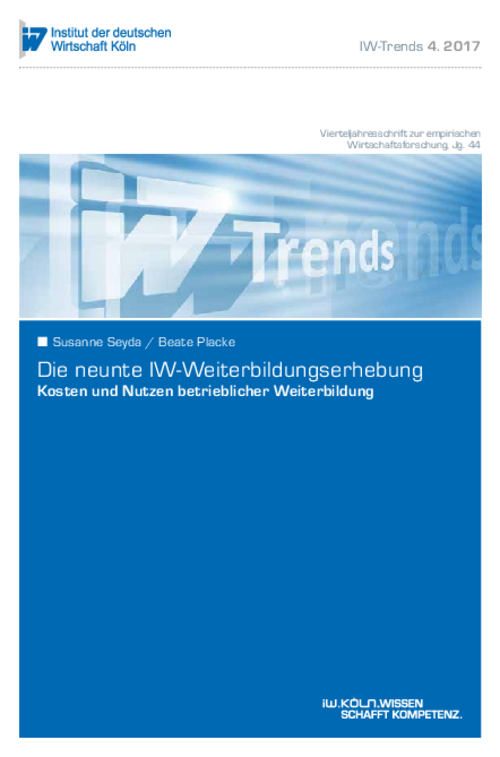In 2016 some 85 per cent of companies in Germany were active in continuing vocational training, using a broad mix of methods.

The 9th IW Survey of Further Training: The Costs and Benefits of Continuing Further Training
IW-Trends

In 2016 some 85 per cent of companies in Germany were active in continuing vocational training, using a broad mix of methods.
In recent years, there has been a particularly noticeable increase in the use of informal forms of further training – informational events, learning on the job and self-directed learning using (electronic) media. Last year German businesses invested 33.5 billion euros in further training. Of this, 17.6 billion euros went on direct costs such as course fees and teachers’ remuneration, a nominal increase of 11 per cent over 2013. On average, every employee spent 17.3 hours in further training. Small businesses are less likely to conduct or sponsor further training, but those that do spend more time and money per capita than larger firms. Both voluntary agreements, which can take account of a company’s specific circumstances, and binding collective agreements, which can provide a higherlevel framework for the training, encourage commitment to continuing vocational education.

Susanne Seyda / Beate Placke: Die neunte IW-Weiterbildungserhebung – Kosten und Nutzen betrieblicher Weiterbildung
IW-Trends

More on the topic

The Regional Distribution of Graduates in Germany
Graduates in Germany are distributed very unevenly across the country. Taking the population aged between 35 and 44, who have generally already completed their higher education, in 2019 the highest proportions of university graduates were to be found in Berlin ...
IW
The Regional Distribution of Low-skilled Workers in Germany
Low-skilled workers in Germany are heavily concentrated in urban areas. In 2019, the proportion of 25- to 64-year-olds who had not completed at least two years of vocational training or higher education was almost twice as high in cities with a population of ...
IW